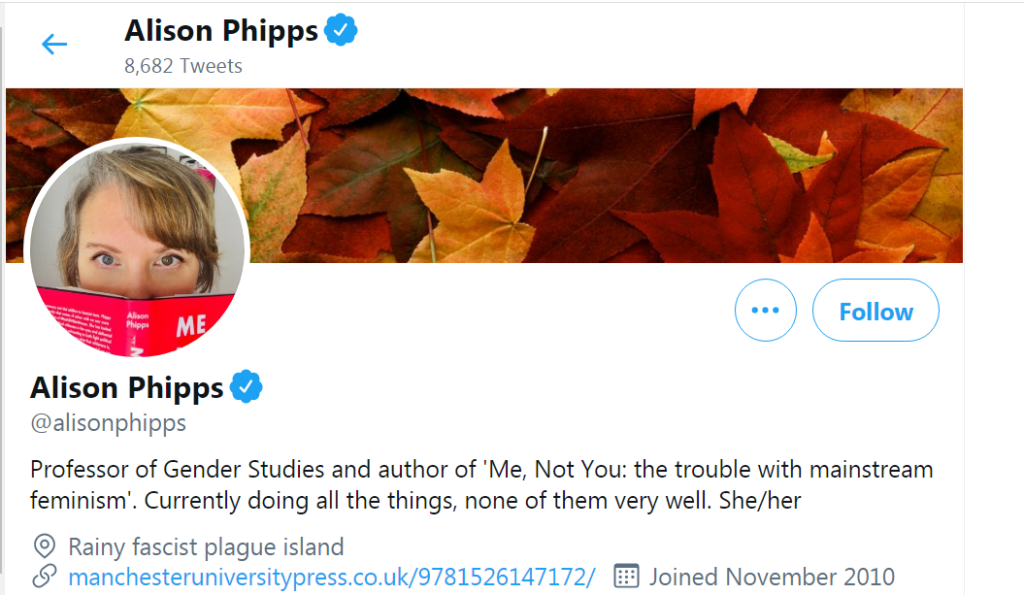Why was NPR talking about “multiracial whiteness”? Because of a Washington Post think piece by Cristina Beltrán, who is an associate professor of social and cultural analysis at NYU.
The Trump administration’s anti-immigration, anti-civil rights stance has made it easy to classify the president’s loyalists as a homogenous mob of white nationalists. But take a look at the FBI’s posters showing people wanted in the insurrectionist assault on the U.S. Capitol: Among the many White faces are a few that are clearly Latino or African American.
So! Rather than try to figure out how brown people manage to be fans of murderous bullies who despise brown people, we have to decide that that’s “whiteness.”
Yes, Trump’s voters — and his mob — are disproportionately White, but one of the more unsettling exit-poll data points of the 2020 election was that a quarter to a third of Latino voters voted to reelect Trump.
Ever heard of Cuba? Miami? Florida? It’s not news that there are a lot of very conservative Cubans or descendants of Cubans in Florida and that they are why Florida is all but impossible for Democrats to win. Latino doesn’t mean automatically on the left, to put it mildly.
The chairman of the neo-fascist Proud Boys is Enrique Tarrio, a Latino raised in Miami’s Little Havana who identifies as Afro-Cuban; when he arrived in Washington for the Jan. 6 march, he was arrested for allegedly burning a Black Lives Matter banner taken from a Black church the month before.
What are we to make of Tarrio — and, more broadly, of Latino voters inspired by Trump? And what are we to make of unmistakably White mob violence that also includes non-White participants? I call this phenomenon multiracial whiteness — the promise that they, too, can lay claim to the politics of aggression, exclusion and domination.
Why? Why do you call it that? You might as well call it rice pudding, or Vladivostok.
Rooted in America’s ugly history of white supremacy, indigenous dispossession and anti-blackness, multiracial whiteness is an ideology invested in the unequal distribution of land, wealth, power and privilege — a form of hierarchy in which the standing of one section of the population is premised on the debasement of others. Multiracial whiteness reflects an understanding of whiteness as a political color and not simply a racial identity — a discriminatory worldview in which feelings of freedom and belonging are produced through the persecution and dehumanization of others.
Of course, there are existing words that actually mean that, but no, let’s call it whiteness, because it sounds so insidery.
Multiracial whiteness offers citizens of every background the freedom to call Muslims terrorists, demand that undocumented immigrants be rounded up and deported, deride BLM as a movement of thugs and criminals, and accuse Democrats of being blood-drinking pedophiles.
…
America’s racial divide is not simply between Whites and non-Whites. Thinking in terms of multiracial whiteness helps us recognize that much of today’s political rift is a division between those who are drawn to and remain invested in a politics of whiteness and those who seek something better.
What? If the racial divide is not simply between Whites and non-Whites then why say it’s between whiteness and something better? Why not use a different word, that would make that paragraph less startlingly incoherent?
We witnessed this very divide in Georgia, when a significant segment of White voters broke with Georgia’s White majority, joining a multiracial coalition that sent Raphael Warnock and Jon Ossoff to the U.S. Senate, following the leadership of Black women whose organizing made that electoral victory possible.
And that’s because…whiteness.
No wonder Alison Phipps is on board.




